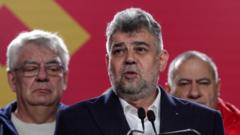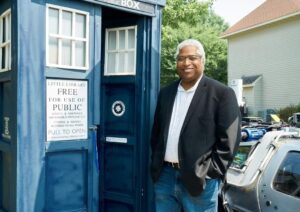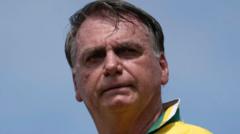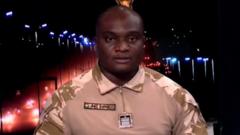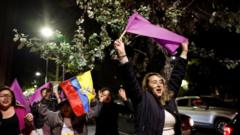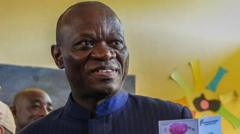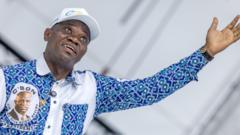The removal of Tidjane Thiam from the electoral list raises questions about fair competition in Ivory Coast's upcoming elections.
Main Opposition Leader Disqualified from Ivory Coast Presidential Race

Main Opposition Leader Disqualified from Ivory Coast Presidential Race
Judiciary's ruling on Tidjane Thiam's citizenship status could impact the electoral landscape
In a significant development in Ivory Coast's political landscape, main opposition leader Tidjane Thiam has been disqualified from the upcoming presidential election scheduled for October. The judiciary's decision, which is final and cannot be appealed, cited Thiam's ineligibility on the grounds that he forfeited his Ivorian nationality upon acquiring French citizenship in 1987.
Thiam, who relinquished his French citizenship in order to participate in the presidential race, expressed deep discontent, labeling the ruling as an "act of democratic vandalism." He emphasized that this decision could disenfranchise millions of voters who support his candidacy. Just a week prior to this ruling, Thiam had been confirmed as the sole candidate for the centre-right Democratic Party (PDCI), having received an overwhelming majority of 5,321 votes out of 5,348 cast.
While the ruling party, RHDP, has yet to announce its candidate, the current president, Alassane Ouattara, who is 83, is expected to vie for a fourth term in office. This decision follows a series of disqualifications involving other prominent political figures, including former President Laurent Gbagbo.
Thiam reacted to the verdict by alluding to the fear felt by RHDP leaders, indicating that their actions suggest an eagerness to maintain power rather than subject themselves to the electoral process. Having made history as the first Ivorian to gain entry into France's esteemed Polytechnique engineering school, Thiam returned to Ivory Coast to navigate a political career that saw him appointed planning minister at the age of 36 before the PDCI's ousting in a 1999 coup.
After spending years abroad making a name for himself in the corporate world with leading firms such as Aviva, Prudential, and Credit Suisse, Thiam's political aspirations seem dramatically sidelined following this ruling. Although he stepped down from his last role with Credit Suisse amidst a scandal in 2020, he was exonerated of any wrongdoing, further adding complexity to his political trajectory as he aimed to reshape the democratic landscape in his home country.
Thiam, who relinquished his French citizenship in order to participate in the presidential race, expressed deep discontent, labeling the ruling as an "act of democratic vandalism." He emphasized that this decision could disenfranchise millions of voters who support his candidacy. Just a week prior to this ruling, Thiam had been confirmed as the sole candidate for the centre-right Democratic Party (PDCI), having received an overwhelming majority of 5,321 votes out of 5,348 cast.
While the ruling party, RHDP, has yet to announce its candidate, the current president, Alassane Ouattara, who is 83, is expected to vie for a fourth term in office. This decision follows a series of disqualifications involving other prominent political figures, including former President Laurent Gbagbo.
Thiam reacted to the verdict by alluding to the fear felt by RHDP leaders, indicating that their actions suggest an eagerness to maintain power rather than subject themselves to the electoral process. Having made history as the first Ivorian to gain entry into France's esteemed Polytechnique engineering school, Thiam returned to Ivory Coast to navigate a political career that saw him appointed planning minister at the age of 36 before the PDCI's ousting in a 1999 coup.
After spending years abroad making a name for himself in the corporate world with leading firms such as Aviva, Prudential, and Credit Suisse, Thiam's political aspirations seem dramatically sidelined following this ruling. Although he stepped down from his last role with Credit Suisse amidst a scandal in 2020, he was exonerated of any wrongdoing, further adding complexity to his political trajectory as he aimed to reshape the democratic landscape in his home country.


